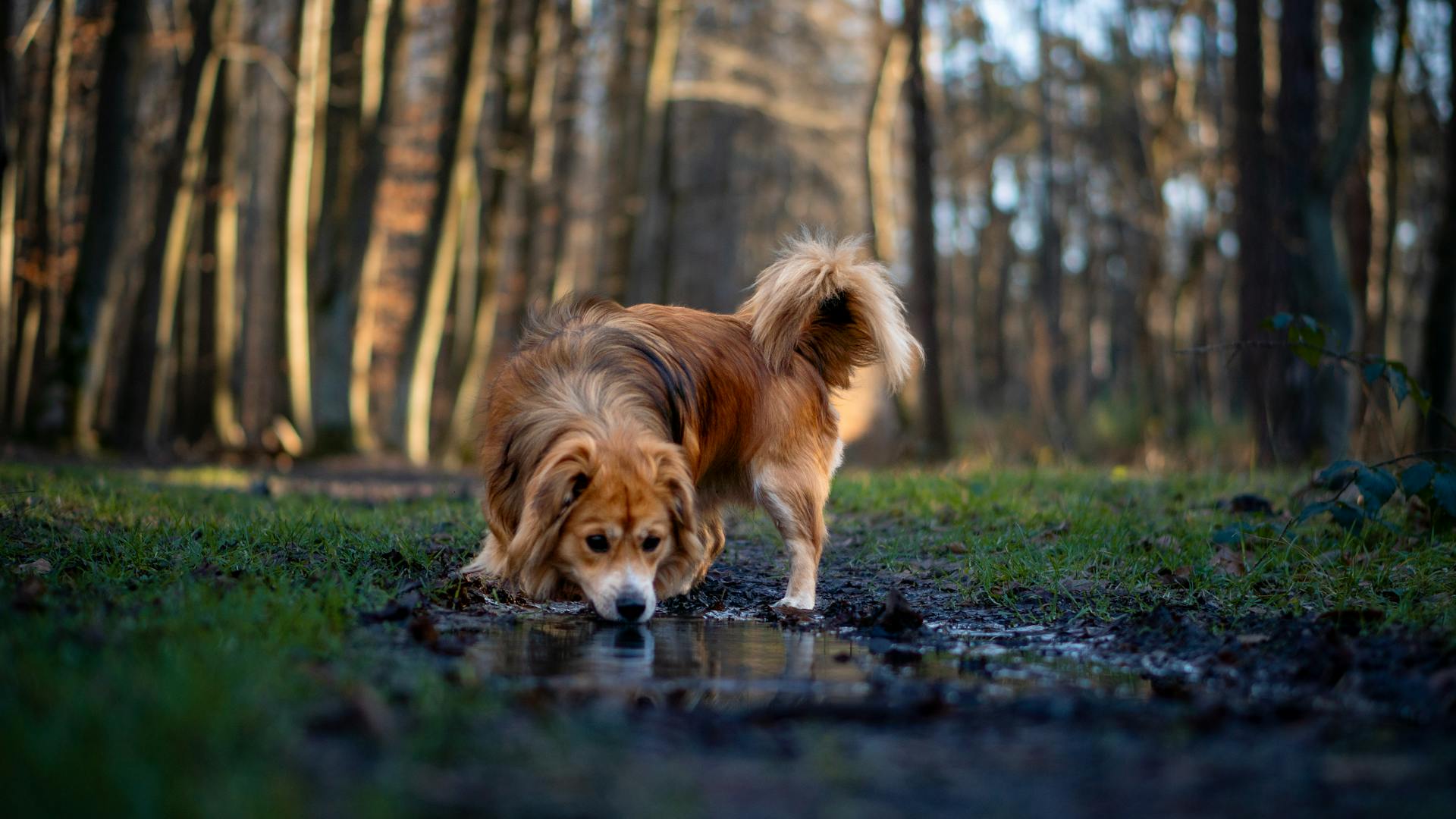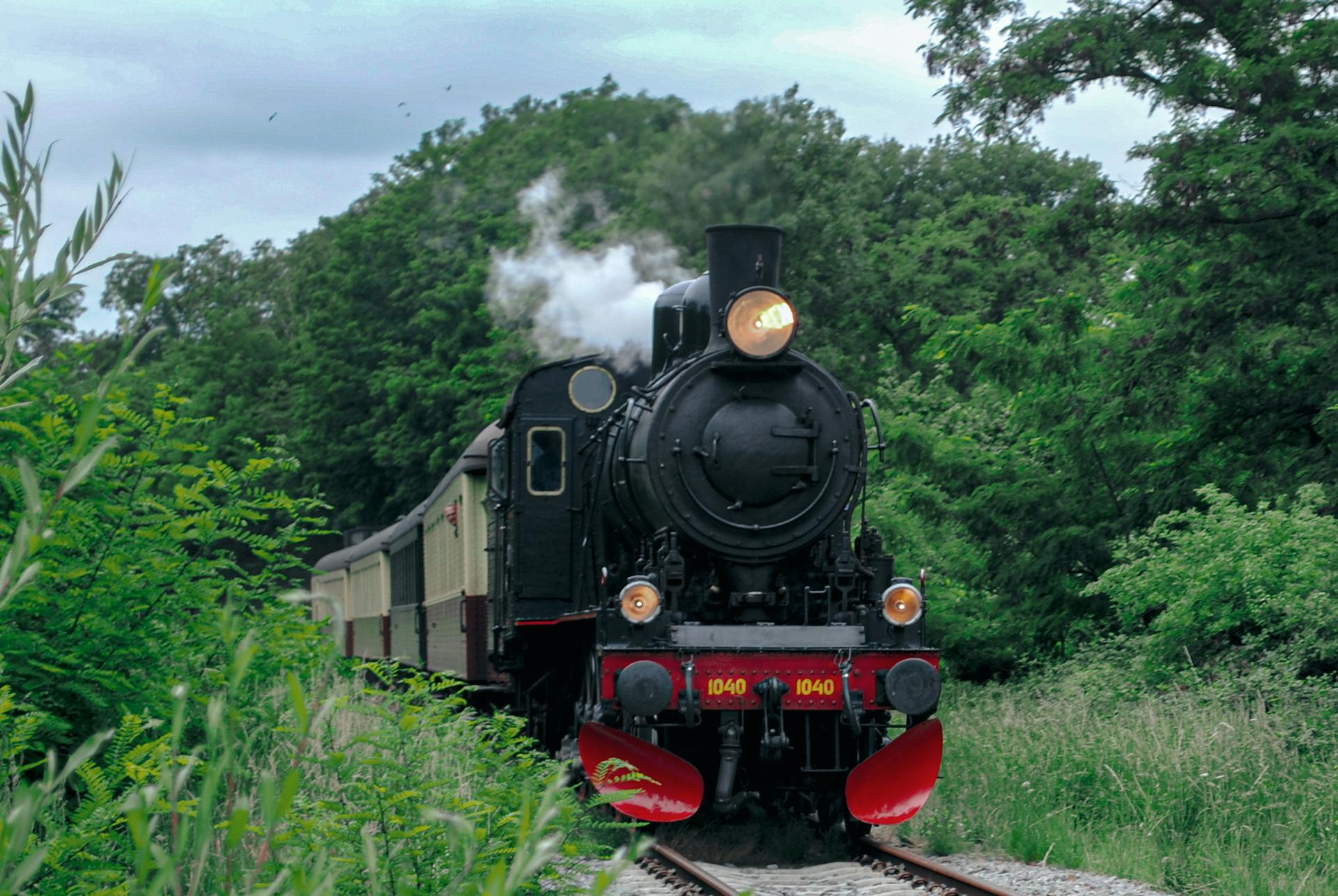
The Chug is a unique hybrid breed that originated from the cross between a Pug and a Chihuahua.
They are known for their small size, typically weighing between 7-13 pounds and standing 6-10 inches tall.
Their short coats require minimal grooming, making them a low-maintenance pet for many owners.
Chugs are often described as friendly, outgoing, and affectionate, making them great companions for families and individuals alike.
Their adaptability to apartment living and minimal exercise needs make them a popular choice for city dwellers.
They can be prone to health issues such as hypoglycemia, patellar luxation, and obesity, so regular veterinary check-ups are essential.
Physical Characteristics
The Chug dog is a unique breed that inherits characteristics from its Chihuahua and Pug parents. They typically stand 6-14 inches tall and weigh between 10-20 pounds.
Their height can vary, but they usually fall within this range. The Chug's coat can be short and smooth or longer and bristly, and it comes in a variety of colors including brown, cream, fawn, black, blue, gray, and white.
You might enjoy: Black Chug Dog
Chugs often have a wrinkled forehead, a trait inherited from their Pug lineage, which gives them a charming and slightly comical expression. Their ears can be either erect like a Chihuahua or floppy like a Pug.
Their overall appearance is a delightful blend of Chihuahua sassiness and Pug charm. Chugs have a compact and sturdy build with a rounded head, short muzzle, and large, expressive eyes.
Here's a breakdown of the average size and weight of a Chug dog:
Their short coat requires regular brushing to remove loose fur and prevent matting.
Personality and Temperament
Chugs are known for their charming and affectionate personalities. They thrive on human companionship and love being the center of attention.
Chugs are social dogs that form strong bonds with their families and often with one particular person. They're loyal and loving companions.
Their playful and mischievous side keeps their owners entertained with their antics. Chugs enjoy the chase, but having cats in the household isn't advisable.
Despite their small size, Chugs have a big personality and a confident demeanor. They're not afraid to stand up to larger dogs and may exhibit a stubborn streak at times.
Chugs are intelligent and eager to please, making them relatively easy to train with positive reinforcement techniques. However, they can be sensitive to harsh training methods, so patience and consistency are key.
Chugs are great companions for families, singles, and seniors alike. Their adaptable nature allows them to thrive in various living situations, from apartments to houses with yards.
Because of their size, Chugs are vulnerable to accidental injuries from young children and large dogs. They do better in homes where they can be the only pet and where children know how to play gently.
Chugs aren't particularly fond of alone time and may experience separation anxiety when left alone. Without enough daily exercise and social interaction, bored Chugs can resort to barking and destructive activities.
Care and Needs
Chug dogs are adaptable to apartment living, but they still need regular exercise and mental stimulation. They require about 45 minutes of exercise per day, which can be broken up into short bursts of activity.
Chugs are prone to destructive tendencies and excessive barking if they're under-exercised or bored. They thrive in homes with retirees or work-from-home humans who can provide them with constant companionship.
A Chug's ideal day involves short walks, playtime, and snacks in moderation. They love to follow their humans around the house and enjoy interactive toys or playing fetch with a favorite plush.
Chugs are eager to please and respond well to positive reinforcement training. They should receive praise, treats, and toys to help them understand what's expected of them.
A Chug's grooming needs depend on their coat type. If they have a smooth coat, they require occasional brushing and regular baths. If they have a longhaired coat, they need weekly brushing to prevent tangles and mats.
Recommended read: Chug Dog Photos
To keep your Chug's facial folds clean, use a damp cloth or pet facial wipes daily. Daily tooth brushing is also essential to prevent dental disease.
Here's a summary of a Chug's basic needs:
Chugs are generally healthy, but they can be prone to certain health issues due to their brachycephalic nature. Regular veterinary check-ups are essential to monitor their health and catch any potential problems early.
Health
A Chug's lifespan is typically 10-15 years, but they can be prone to certain health issues. They may inherit health conditions from their parent breeds, such as epilepsy, allergies, hemivertebrae, hip dysplasia, and nerve degeneration.
Pugs, one of the parent breeds, can be prone to respiratory problems due to their short muzzles, especially in warmer weather. This can make breathing more difficult for Chugs with similar characteristics.
Chugs are also prone to dental issues, obesity, patellar luxation, and eye problems. Regular veterinary check-ups and a balanced diet are crucial for maintaining their overall health and well-being.
Check this out: Dog Breeds Watch Dogs
It's essential to work with a reputable breeder who conducts health screenings on their breeding dogs to reduce the risk of hereditary conditions in Chug puppies. This can help ensure that your Chug lives a long and happy life by your side.
Here are some common health concerns for Chugs:
- Respiratory problems
- Dental issues
- Obesity
- Patellar luxation
- Eye problems
By providing your Chug with proper care, nutrition, and exercise, you can help prevent these health issues and ensure they live a happy and healthy life.
Grooming Guide
Chugs are relatively low-maintenance when it comes to grooming, but they do require regular brushing to remove loose fur and prevent matting.
Their short coat requires regular brushing with a slicker brush or grooming mitt to keep it in top condition. Bathing should be done as needed, using a mild dog shampoo to avoid drying out their skin.
Cleaning the wrinkles on their face is crucial to prevent skin issues, so use a damp cloth or gentle dog wipes to wipe away dirt and debris regularly.
Here's an interesting read: Dog Grooming for Difficult Dogs
Trim their nails every few weeks to prevent overgrowth and keep their feet healthy. Brush their teeth regularly to prevent dental issues and maintain their overall oral health.
If you're not comfortable with grooming your Chug at home, consider taking them to a professional groomer for regular maintenance.
Here are some grooming tips to keep in mind:
Their grooming needs can vary depending on their coat, but with regular maintenance, they'll look and feel their best.
Training
Training a Chug can be a rewarding experience for both you and your furry friend. Their intelligence and eagerness to please make them relatively easy to train, especially when using positive reinforcement techniques such as treats, praise, and playtime.
Chugs respond well to consistency and patience, so be sure to establish clear boundaries and rules from the start. This will help them feel secure and confident.
Basic obedience training, such as sit, stay, come, and down, is essential for a well-behaved Chug. Socialization is also crucial to help them feel comfortable around unfamiliar people, animals, and environments.
You might enjoy: All about Dogs Dog Training
Exposing your Chug to different sights, sounds, and experiences from a young age will build their confidence and prevent fear-based behaviors. This is especially important during their first 16 weeks of life.
If you encounter any training challenges or behavioral issues, don't hesitate to seek help from a professional dog trainer or behaviorist. They can provide guidance and support to address specific concerns and help you build a strong bond with your Chug through positive training methods.
A positive, rewards-based training approach has the triple benefit of teaching necessary skills, building the human-animal bond, and providing mental and physical exercise.
Purchasing and Owning
Purchasing a Chug can be a daunting task, but with the right information, you can make an informed decision.
First and foremost, it's essential to avoid buying from pet stores, as the puppies often come from puppy mills with terrible conditions. Instead, consider adoption or finding a responsible breeder.
When looking for a breeder, be wary of those who pose as Chug breeders but are actually running a puppy mill in disguise. A legitimate breeder will have a clean and spacious home, be transparent about their operations, and want to meet you in person.
Here are some key things to look for in a responsible breeder:
- They should have a spacious, clean home.
- They should be transparent and open about their operations.
- They should want to meet you in person.
- They should specialize in only one or two mix breeds.
- They should be happy to share information and provide vet/vaccine documentation.
- They should recommend getting insurance for your new Chug.
Remember, a responsible breeder will not always have puppies available, so be patient and don't expect to find a Chug puppy in a factory-like setting.
Buy a Puppy
Buying a Chug puppy can be a daunting task, but with the right approach, you can find a healthy and happy companion. Don't use a pet store to buy a Chug puppy, as they often come from puppy mills with horrible conditions.
If you're set on buying a puppy, consider finding a responsible breeder who specializes in Chug mix breeds. A good breeder will have a spacious and clean home, be transparent and open, and want to meet you in person.
When searching for a breeder, look for one who only breeds one or two mix breeds, as this indicates they're dedicated to their craft. They should also be happy to share information about the puppy's parents, vet/vaccine documentation, and recommend insurance.
You can also use FaceTime to check the living conditions of the puppy if the breeder is far away. Keep in mind that responsible breeders may not always have puppies available, so be prepared to wait.
If you'd rather adopt a Chug, you can visit a shelter or look for Chug dog rescue groups online. The cost to adopt varies by rescue group, shelter, and the dog's age, but it's often less than buying from a breeder.
Owning a Dog
Owning a dog can be a wonderful experience, but it's essential to consider the responsibilities and challenges that come with it. If you're thinking of bringing a Chug into your family, here are some things to keep in mind.
First and foremost, it's crucial to learn about the needs and characteristics of Chugs before bringing one home. This includes understanding their temperament, exercise requirements, and potential health issues.
Chugs are generally low-maintenance pets that can thrive in small spaces, but they still need regular exercise and attention. They're ideal companions for families with older kids, as they can be fragile and vulnerable to injury. Toddlers and energetic kids may accidentally harm a Chug, especially when they're puppies.
If you're considering adopting a Chug, be aware that puppy mills often pose as breeders, so it's vital to research and find a responsible breeder. A reputable breeder will have a clean and spacious home, be transparent about their operations, and be willing to answer your questions.
Here are some essential tips to keep in mind when caring for a Chug:
- Feed them frequently, especially as puppies, to avoid hypoglycemia (low blood sugar)
- Provide regular exercise, but avoid strenuous activities in hot weather
- Be mindful of their small stature and potential health issues, such as brachycephalic syndrome
- Consider their needs and personality when choosing a home environment
By understanding these factors and being a responsible owner, you can provide a happy and healthy life for your Chug.
Cost

Purchasing a Chug puppy can be a significant upfront cost, ranging from $800 to $2200.
The average monthly food cost for a Chug is around $20-30, depending on the dog food you choose.
A Chug's medical expenses can be higher than average, averaging $550-750 per year.
Getting your Chug insured is a good idea, as it can cost around $50 a month.
If you can't afford pet health insurance, consider insuring your Chug for the first year or two, when they're most prone to accidents.
Grooming costs can add up, but a short-haired Chug's needs are relatively simple, with only occasional baths and nail clipping required.
Frequently Asked Questions
What does chug mean dog?
A "chug" is a crossbreed dog that combines the characteristics of a Chihuahua and a Pug, often referred to as a Chihuahua-Pug mix. This unique hybrid is also known as a Pughuahua.
Featured Images: pexels.com


